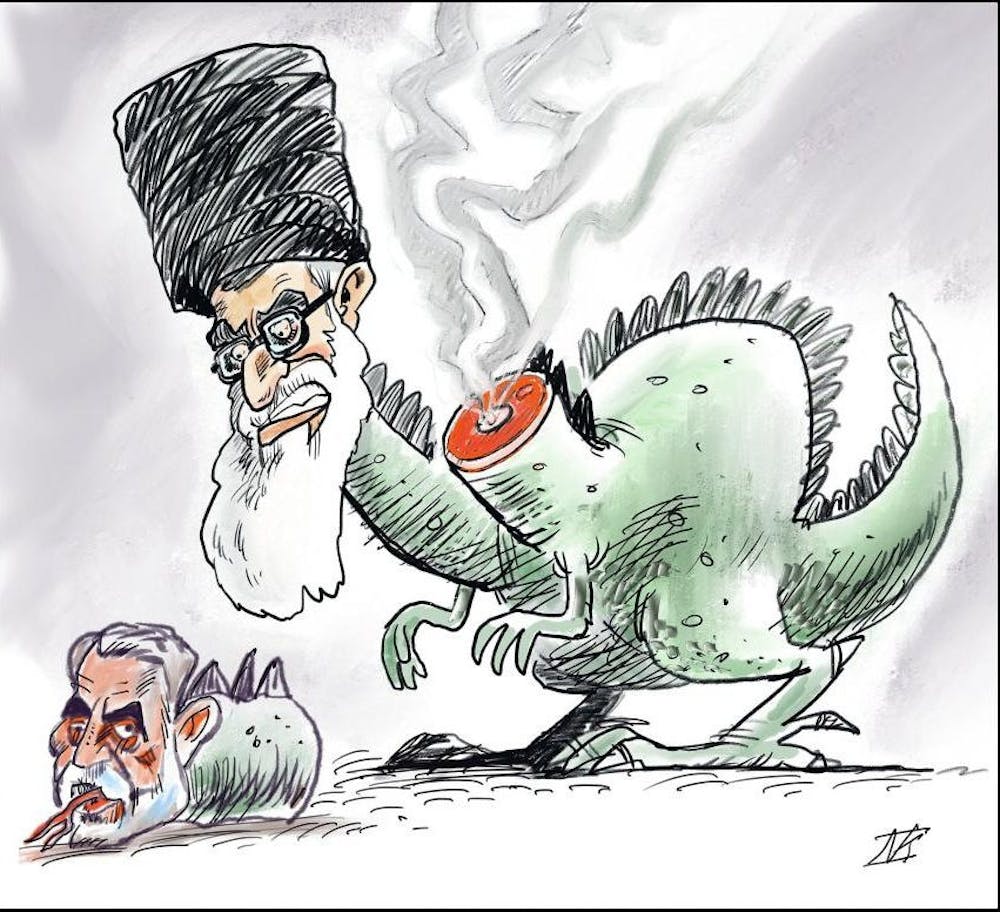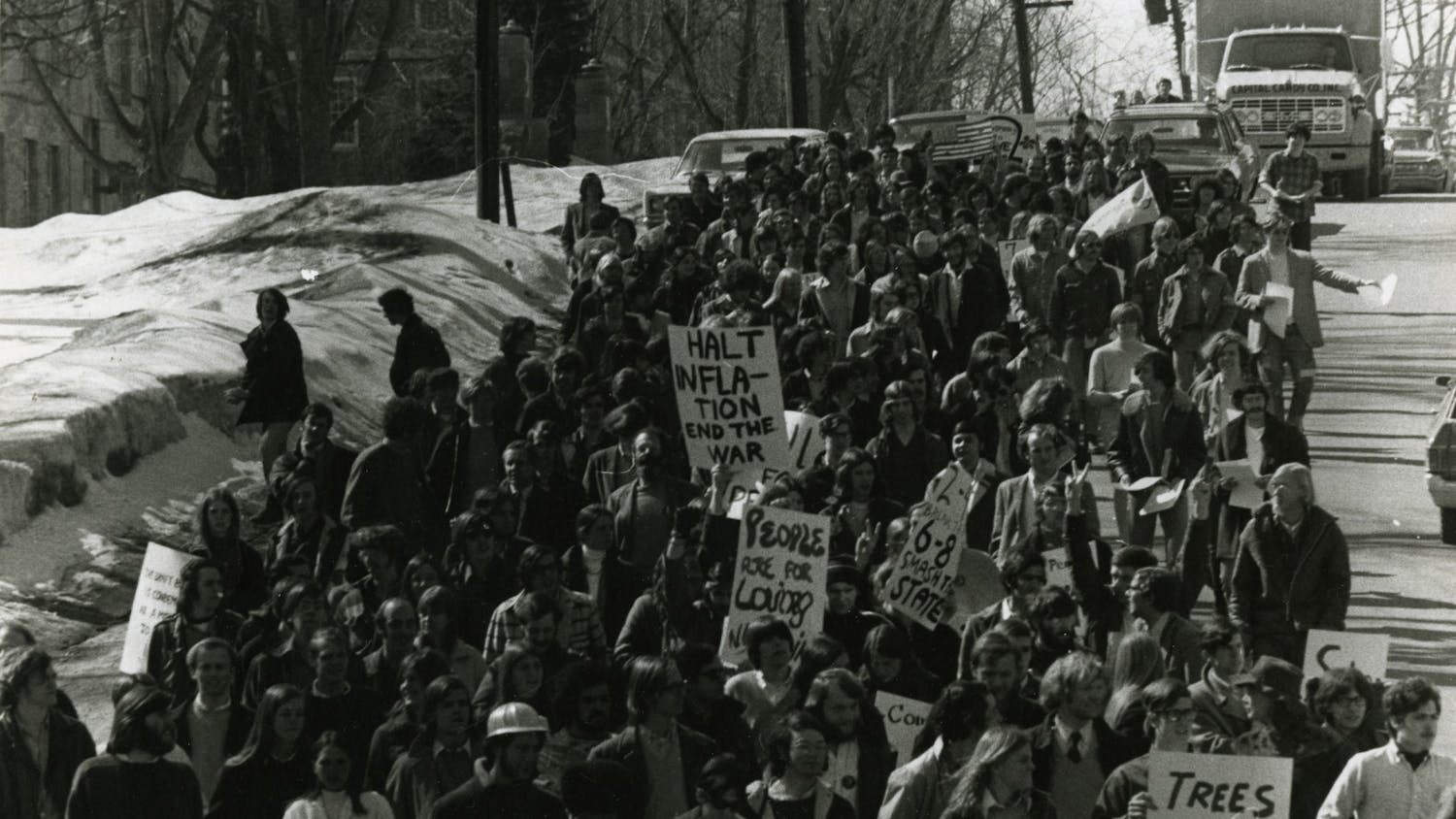What has unfolded since the morning of January 3, 2020 has been incredibly difficult for me to unpack as an Iranian-born Canadian citizen and a U.S. permanent resident. To summarize the sequence of events, the United States, under President Donald Trump launched an airstrike that killed Iranian General Qasem Soleimani, the leader of the Quds Force, sparking an escalation in tensions between the Iranian regime and the U.S.. Iran then launched over a dozen missiles to two Iraqi bases housing U.S. troops. Four or so hours later, a Ukrainian passenger plane, UIA Flight 752, crashed in Tehran after take-off. After initially blaming the crash of engine failure, the Iranian government admitted to mistakenly launching a surface-to-air missile (some reports now say two missiles were launched).
To put it simply, the recent events involving the Iranian regime have been overwhelming. Although I am against escalating tensions in the Middle East, the narratives of Soleimani and the Iranian regime presented in western media, specifically concerning Soleimani’s popularity and the general opinion of the Iranian people, are entirely false. It is disheartening that world powers economically involved with Iran have turned a blind eye to the Iranian regime’s ongoing abuse of power and attempts to silence its opposition. The powerful individuals within the Iranian regime are not humans: they are monsters who must be held accountable for all the pain and suffering they have caused their innocent people and those affected by Soleimani’s actions outside of Iran.
I am adamantly against the current regime and its treatment of the Iranian people. My family would not have had to leave Iran if the regime allowed its citizens to practice their human rights. As my father likes to say, “there may be freedom of speech, but there is no freedom after speech.” The Islamic Republic of Iran consists of a broken government, economic disparity and minimal human rights, where the Ayatollahs and the rich become richer and the rest are left to suffer. I have always wished for the fall of this disgraceful regime, and hope the death of Qasem Soleimani could be the beginning of the end.
Soleimani, who dictated Iran’s foreign policy, was the second most powerful man in the country. He was personally sanctioned by the U.S., the European Union, and the United Nations, and the U.S. even deemed him a terrorist. Until his death, many of you may not have even heard his name. But to many Iranians, he was either seen as a “selfless hero” or a murderer. Soleimani’s minority of supporters was made up of regime sympathizers who favored expansionism and military interventionism in hopes of returning to the glory Iranians once enjoyed during the Persian Empire.
Under Soleimani’s leadership, the Quds Force has been responsible for the deaths of hundreds of thousands of civilians in Syria, Yemen, Iraq, Lebanon, and Afghanistan, as well as hundreds of U.S. soldiers in the region. The Islamic Republic’s financial and military support for its proxies and allies is alarming because it has placed greater importance on power over the condition of the Iranian people.
The Iranian regime declared the days that followed Soleimani’s death national days of mourning, closing businesses, workplaces and schools during that period. Protests erupted in some cities with Soleimani supporters chanting “death to America.” The Iran state media outlets released videos of the streets of major cities packed with black-clad mourners. The funeral procession for Soleimani eventually led to a stampede that killed 70 mourners and injured over 100 other people.
It is difficult to gauge the reactions of Iranians living in Iran because of the restrictions on communication within the country. A prominent tweet reposted by Shaun King, an outspoken civil rights advocate and journalist, claimed 82% of Iranians inside the country looked favorably upon Qasem Soleimani. This statistic originated from a 2019 study conducted by the University of Maryland’s School of Public Policy. This data was collected by interviewing 1,000 Iranians inside the country via phone interviews. The methodology of this study is problematic because it is a common belief in Iran that the government has all phones tapped, so how could Iranians comfortably express their true opinion over a presumably tapped phone?
A more credible study done in 2018 by the Group Analyzing and Measuring Attitudes in Iran (GAMAAN) surveyed over 19,000 Iranians, 80% of whom lived inside Iran, through a secure online survey platform shared via social media networks. Only 0.2% of respondents said they would vote for Qasem Soleimani in a free election. While I understand that not all of Soleimani’s supporters would vote for him for president, these findings are an indicator of Soleimani’s perceived popularity among Iranians.
Prominent American news media outlets have brought on foreign policy experts and political analysts to weigh in on the escalating tensions with the Iranian regime, deafening the public to important matters at hand. Republicans have proudly supported the “accomplishment” of Trump in ordering the airstrike that killed a terrorist. Democrats have expressed their fears of what the regime and its allies may do, and have focused on how the crisis is Trump’s way of diverting attention from his impeachment.
Since the UIA Flight 752 crash, U.S. media coverage has diminished because the crisis no longer appeals to the U.S. public or the political agenda of U.S. politicians. But the crisis in Iran is not just a political matter: it is a matter of human rights and holding a corrupt regime accountable. These events remain relevant to millions of innocent Iranians who continue to live through the dire conditions, even if they’re not deemed important enough to be covered by U.S. media.
[pullquote speaker="" photo="" align="center" background="on" border="all" shadow="on"]U.S. media coverage has diminished because the crisis no longer appeals to the U.S. public or the political agenda of U.S. politicians.[/pullquote]
In a recent interview, House Speaker Nancy Pelosi was asked whether she supported the protesters in Iran. She diminished the majority of protesters opposing the regime by focusing her response on protests involving Solemani’s supporters because they were “protesting against the U.S..” Pelosi’s disregard for the majority of Iranians is a representation of how the Iranian people have been treated by foreign governments, which have disregarded the regime’s oppression of the Iranian people’s rights.
The IRGC has a long history of hindering the Iranian people’s right to freely express their opinions: most recently, over 1,500 were killed during the November 2019 unrest protesting the exponential spike in fuel prices. Since the regime’s admission of guilt to their role in the UIA Flight 752 crash, thousands of protesters have flooded the streets of major Iranian cities, chanting “Shame on you” to the IRGC forces and calling for Ayatollah Khamenei to step down. The IRGC’s response? Firing tear gas and sometimes shooting and killing its own people.
Irrespective of international response, the Iranian government will continue to silence its own people with excessive force throughout these protests because this crisis has placed them in a vulnerable position. During these trying times of conflict, I ask you to go after the facts and to not be afraid to question what your favorite politicians may say. Evidence surrounding these events will continue to come out, and the Iranian people will continue to risk their lives by sharing damning evidence on social media platforms displaying the regime’s troubling actions in hopes of uncovering the truth that the regime frequently tries to hide from the world. Innocent Iranians have suffered far too long and deserve to be heard. The Iranian regime refuses to give a voice to the voiceless, so as a free society, we must hear those who are trying to speak up.
Niki Kowsar is a member of the Middlebury class of 2021.5
The crisis in Iran: An oppressive regime and its voiceless people

Comments


